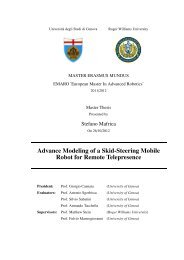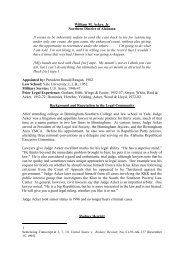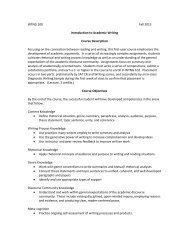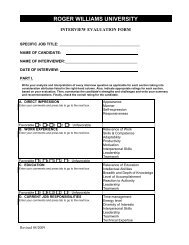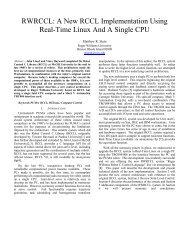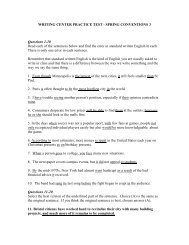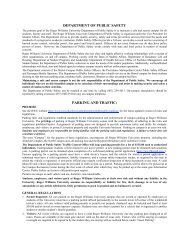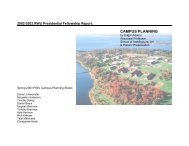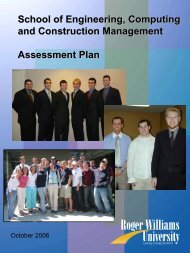Ira DeMent Middle District of Alabama Now you come to the ...
Ira DeMent Middle District of Alabama Now you come to the ...
Ira DeMent Middle District of Alabama Now you come to the ...
You also want an ePaper? Increase the reach of your titles
YUMPU automatically turns print PDFs into web optimized ePapers that Google loves.
on how <strong>to</strong> complete <strong>the</strong> transaction, and that it was Kenneth, not Aiken, who was <strong>the</strong> “bigman.”Aiken also revealed that he, Kenneth, Phifer, and Moore had been in a room at <strong>the</strong>Villager Inn before <strong>the</strong> deal. A search <strong>of</strong> <strong>the</strong>ir room at that motel yielded a bag with 73.9more grams <strong>of</strong> crack cocaine. All five men were eventually indicted for conspiracy <strong>to</strong>distribute and distribution <strong>of</strong> crack (for <strong>the</strong> Howard Johnson sale), possession with intent<strong>to</strong> distribute crack cocaine (for <strong>the</strong> drugs found at <strong>the</strong> Villager Inn), and possession <strong>of</strong> afirearm during a drug trafficking <strong>of</strong>fense (for <strong>the</strong> gun under Aiken’s seat).Several <strong>of</strong> <strong>the</strong> defendants, including Kenneth, wanted <strong>to</strong> cooperate in exchange for alesser sentence. Kenneth even agreed <strong>to</strong> be interviewed by <strong>the</strong> government without anyadvance promises <strong>of</strong> leniency. Unfortunately, Kenneth’s lawyer chose not accompanyhim <strong>to</strong> this “pr<strong>of</strong>fer interview” with <strong>the</strong> prosecu<strong>to</strong>r, out <strong>of</strong> concern that he “might berepresenting some <strong>of</strong> <strong>the</strong> individuals” that Kenneth might mention and he did “not want<strong>to</strong> have a conflict.” 4 Thus, Kenneth did not have <strong>the</strong> benefit <strong>of</strong> counsel <strong>to</strong> help himnegotiate his way. In fact, before <strong>the</strong> interview, Kenneth’s lawyer <strong>to</strong>ld <strong>the</strong> prosecu<strong>to</strong>r hecould talk <strong>to</strong> Kenneth about drugs, but not about <strong>the</strong> gun that was recovered from <strong>the</strong> car,apparently out <strong>of</strong> a misguided concern that this information might be used againstKenneth later on. 5 In fact, at sentencing, <strong>the</strong> government alluded <strong>to</strong> this condition as onereason that Kenneth was not <strong>of</strong>fered a cooperation agreement, 6 although given Howard’sinitial claim that Kenneth was <strong>the</strong> “big man,” it is not clear that <strong>the</strong> prosecu<strong>to</strong>r wouldhave wanted Kenneth <strong>to</strong> testify against his co-defendants under any circumstances. 7It is also unclear whe<strong>the</strong>r Kenneth was given an opportunity <strong>to</strong> plead guilty <strong>to</strong> lower hissentencing exposure. At <strong>the</strong> sentencing hearing, <strong>the</strong> prosecu<strong>to</strong>r claimed that he had amade a plea <strong>of</strong>fer which Kenneth’s at<strong>to</strong>rney rejected, an assertion that Kenneth’s at<strong>to</strong>rneyhotly contested. 8 What is clear is that Kenneth’s co-defendant, Phifer, was able <strong>to</strong>4 Sent. Tr. at 19.5 His at<strong>to</strong>rney argued at sentencing that he would have been giving up his right <strong>to</strong> a jury trial if hehad made “a pr<strong>of</strong>fer statement that he doesn’t know whe<strong>the</strong>r <strong>the</strong>y are going <strong>to</strong> accept it or not. . . .” and that<strong>the</strong> government had tried <strong>to</strong> “forc[e] him <strong>to</strong> testify against himself, and with no promises whatsoever unlesshe signs an agreement.” Sent. Tr. at 30. Judge <strong>DeMent</strong> clarified this point at sentencing by assuringhimself that <strong>the</strong> government did not in fact use any “<strong>of</strong> <strong>the</strong> information that [Kenneth] gave [<strong>the</strong>government] against him on <strong>the</strong> trial <strong>of</strong> this case.” Sent. Tr. at 30.6 In arguing that Kenneth should not get a reduction for acceptance <strong>of</strong> responsibility, <strong>the</strong>prosecu<strong>to</strong>r stated that “He admitted partial participation, we still have <strong>the</strong> matter <strong>of</strong> <strong>the</strong> gun which Mr. Bell<strong>to</strong>ld his client not <strong>to</strong> talk about. I think that’s <strong>the</strong> whole problem with this case, each <strong>of</strong> <strong>the</strong> Defendantswanted <strong>to</strong> talk about little specific instances instead <strong>of</strong> <strong>the</strong> whole thing. . . .” Sent. Tr. at 49.7 Both sides agreed that, in his pr<strong>of</strong>fer interview, Kenneth provided <strong>the</strong> name <strong>of</strong> his supplier inMississippi and some o<strong>the</strong>r individuals who were selling drugs in <strong>the</strong> Montgomery area. The governmentmaintained that it already knew <strong>of</strong> <strong>the</strong>se people and that no arrests or prosecutions resulted from Kenneth’sinformation, thus he was not entitled <strong>to</strong> a government motion for substantial assistance. Sent. Tr. at 24.8 The prosecu<strong>to</strong>r stated that he <strong>of</strong>fered <strong>to</strong> let Kenneth plead <strong>to</strong> certain counts and “we wouldreduce his sentence by a certain amount.” Sent. Tr. at 26. Kenneth’s at<strong>to</strong>rney asserted no plea <strong>of</strong>fer was



